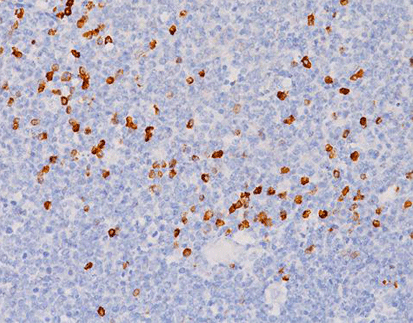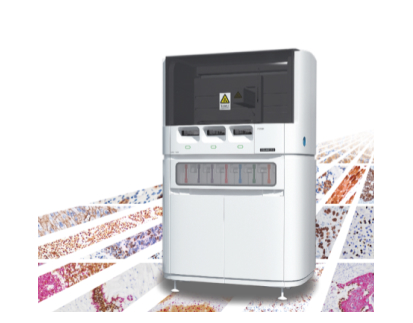Exploring the Function of Lambda Light Chains in Immune Defense

By admin
The Central Role of Light Chains in Immune Protection
The Building Blocks of the Immune System
Immunoglobulins are Y-shaped proteins. They consist of two identical heavy chains and two identical light chains. The heavy chains (γ, μ, α, δ, ε) define the antibody class. The light chains, either kappa or lambda, play a significant role in defining the specificity and overall structure of the antibody. Any heavy chain must be pointed out as being able to associate with either a kappa or a lambda light chain. But both members of a single immunoglobulin molecule’s light chains will always be identical. It is required for optimal immune function to establish so high a degree of structural organization.
Introduction of Lambda Light Chains: Structure and Function
In healthy individuals, the B cells secrete antibodies. The cells secrete kappa or lambda light chains but never both together. In polyclonal populations, as one would anticipate in a healthy and heterogeneous immune response, the kappa to lambda ratio of light chains in B cells is typically 2:1. Though the majority of kappa and lambda chains are attached to heavy-chain immunoglobulins, some percent of free light chains are present in normal serum. A mixed collection of kappa and lambda chains is present in cells and is typically associated with a polyclonal population. The presence of this is a sign of non-malignant or reactive B-cell disorders. This equilibrium is normal and is a sign of an organized immune system.
Lambda Light Chains: Critical Biomarkers for Disease Diagnosis
Normal vs. Aberrant Expression: A Window of Diagnosis
The utility of light chains in diagnosis resides in their distinctive patterns of expression. Homogeneous, monoclonal expression of either kappa or lambda chains is abnormal. Conversely, a deviant pattern, specifically the limited expression of one type of light chain, may be a decisive sign of monoclonal growth or tumor development. That is to say that if a group of B cells nearly entirely or only expresses one type of light chain (e.g., virtually all lambda and negligible kappa), it shows clonal growth. This is usually seen in cancer.
Malignancy Detection: Lymphomas, Multiple Myeloma
Measurement of kappa and lambda light chain expression is essential. It is used in the diagnosis and classification of the majority of blood cancers. For example, restricted expression of kappa or lambda light chains is one of the main diagnostic features of multiple myeloma and several B-cell lymphomas. These include diffuse large B-cell lymphoma (DLBCL), mantle cell lymphoma (MCL), chronic lymphocytic leukemia (CLL), small lymphocytic lymphoma (SLL), marginal zone lymphoma (MZL), and Burkitt lymphoma (BL), among others. Proper identification of these abnormal patterns is of utmost importance for early diagnosis and appropriate patient management.
Empowering Precision Diagnostics with Celnovte’s Advanced Solutions
As a committed producer of medical devices for immunohistochemistry, molecular diagnostics, and histology, we recognize the crucial need for dependable and accurate tools in the diagnostic process. Our product range is created to provide laboratories with modern solutions needed to precisely evaluate light chain expression.
Targeting Lambda Light Chain with Our Immunohistochemistry Antibody
A leading product in our immunochemistry lineup is the Lambda Light Chain(SHL53),MMab. This mouse monoclonal antibody (Clone SHL53) is specifically developed for human reactivity. It provides distinct cellular localization within the cytoplasm and nucleus. It is an extremely useful tool for detecting the presence and distribution of lambda light chains in tissue samples, such as the tonsil tissue demonstrated to be stained with Lambda Light Chain λ.
Lambda Light Chain(SHL53),MMab: Precision and Reliability
Our Lambda Light Chain(SHL53),MMab is offered for both IVD (In Vitro Diagnostic) and RUO (Research Use Only) applications. This ensures its adaptability in both clinical and research environments. Its high specificity guarantees that clinicians and researchers can trust the accurate identification of lambda light chains. This contributes to precise diagnostic results.
Versatility in Format and Application
To suit different laboratory requirements, this antibody is supplied in multiple convenient forms. These include ready-to-use solutions (1mL, 3mL, 6mL) for immediate use, and concentrated versions (0.1mL, 0.2mL, 1mL) for labs that prefer to dilute their own reagents. Stored effectively at 2~8°C, our antibodies preserve their integrity. They should not be frozen and remain stable during shipping for up to one week.
Streamlining Workflow with Automated Staining Instruments
To support our advanced reagents and probes, we provide a full selection of automated staining instruments. These are built to improve efficiency, consistency, and accuracy in diagnostic labs. Our IHC Stainers, Cytology Stainers, H&E Stainers, Special Stainers, ISH Processors, and Nucleic Acid Extractors are made to integrate smoothly into your workflow.
Celnovte Stainers: Enhancing Efficiency and Accuracy
Our Celnovte CNT330/330 stainers are specifically engineered to work effectively with our Kappa/Lambda Probe Kit (ISH). They ensure the best staining outcomes and reduce manual effort. These tools automate the intricate staining process. They lessen human error and deliver reliable, high-quality results that are necessary for accurate diagnostics. By using our stainers, laboratories can save considerable time and enhance their overall productivity.
Comprehensive Solutions for Every Laboratory Need
From immunohistochemistry to molecular and histology applications, our instruments supply a strong foundation for precision diagnostics. We are dedicated to delivering integrated solutions. These include not only the best reagents and probes but also the automated systems that promote efficiency and accuracy in the contemporary laboratory.
Our Commitment to Excellence: Why Partner with Us
Unmatched Sensitivity, Specificity, and Quality
As a prominent manufacturer, Celnovte is proud of the exceptional quality of our products. Our Lambda Light Chain antibody and Kappa/Lambda Probe Kit (ISH) are produced with higher sensitivity and specificity. This ensures trustworthy and accurate results that clinicians and researchers can depend on. Each product goes through strict quality control to meet the highest industry standards.
Customized Solutions for Evolving Diagnostic Needs
Celnovte knows that each laboratory encounters unique challenges and has particular needs. Therefore, we supply not only standard products but also tailored solutions to meet your specific requirements. You might need special reagent formats, customized probe concentrations, or adapted support for specialized research projects. Our team is devoted to collaborating with you to provide bespoke offerings that exactly match your operational framework. Our adaptability ensures you always have the correct tools for your specific diagnostic and research activities.
Dedicated Support and Comprehensive Resources
Our dedication goes beyond product supply. We offer full support, including technical help, brochures, certificates, and Instruction For Use (IFU) & Safety Data Sheets (SDS). This ensures you have all the needed resources for optimal product use and safety. Our devoted team is prepared to help you at every stage, building a genuine partnership in improving healthcare.
FAQ
Q: What are kappa and lambda light chains?
A: Kappa (κ) and lambda (λ) represent two kinds of light chains. They are components of the immunoglobulin (antibody) molecule.
Q: Why is the ratio of kappa to lambda light chains important in diagnostics?
A: A normal kappa:lambda ratio in B cells is approximately 2:1. A limited expression of one type (for instance, mostly lambda or mostly kappa) suggests monoclonal hyperplasia. This is often linked to tumor development, such as lymphomas and multiple myeloma.
Q: What types of diseases can be diagnosed using Kappa/Lambda Probe Kits?
A: Kappa/Lambda Probe Kits are employed in the diagnosis of multiple myeloma and various B-cell lymphomas. These include DLBCL, MCL, CLL, SLL, MZL, and BL.
RELATED PRODUCTS









